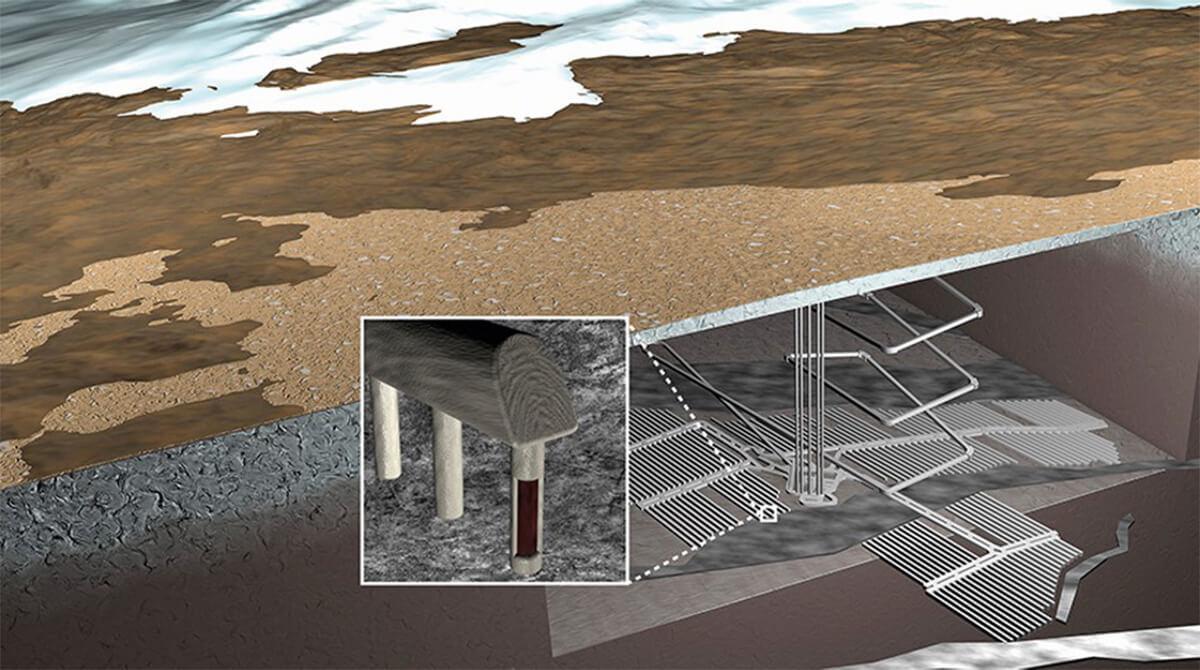International situation
Consensus
Is there an international consensus on long-term waste management?
After decades of research, there is a broad international consensus that deep (or geological) disposal is the only safe final destination for high-level and/or long-lived waste. Worldwide, waste managers, safety authorities and numerous concerned international organisations argue that there is no reasonable alternative to deep disposal. This scientific consensus is based on more than 50 years of research, development and demonstration at an international level.
Deep disposal is the only way to isolate this waste from humans and the environment for hundreds of thousands of years while ensuring that future changes to the earth's surface (due to climate or society) do not affect safety. This is also confirmed by European directive Euratom 2011/70: “It is broadly accepted at the technical level that, at this time, deep geological disposal represents the safest and most sustainable option as the end point of the management of high-level waste and spent fuel considered as waste.”

Other countries
How do other countries view deep disposal?
Worldwide, 26 countries together own nearly 97% of commercial nuclear reactors. Most of these countries have already adopted a national policy for the long-term management of their high-level and/or long-lived waste: they all opted for deep disposal. Some countries have already chosen a site, while others are in the process of doing so.
Where do other countries stand in their decision-making process?
Some countries in Europe have already chosen a host rock and location. For instance, Finland and Sweden will start disposing of their high-level and/or long-lived waste in granite. Finland started construction of a facility in the municipality of Eurajoki in 2017. In Sweden, the government issued a license for construction of a facility in Forsmark in 2022. Switzerland and France, in turn, have opted for clay disposal. Switzerland's choice of location was announced in 2022: Nördlich Lägern in the canton of Zurich. In France, the disposal facility is planned on the border of the Meuse/Haute-Marne departments.
Other European countries have also now started searching for a suitable site for their high-level and/or long-lived waste, including Germany, Hungary, Lithuania, Slovakia, the Czech Republic and the United Kingdom. Countries such as Bulgaria, the Netherlands, Romania, Slovenia and Spain have yet to begin their disposal site selection process. Outside Europe, China and Russia have already chosen a site for the long-term management of their high-level and/or long-lived waste. Other countries have started the search for a suitable site, such as Canada and Japan.

Are there deep disposal facilities for other types of radioactive waste?
Certain countries have deep disposal facilities in operation for low and/or intermediate-level waste, such as Finland (two sites), Hungary, South Korea and Sweden. In turn, the United States has a deep disposal facility for intermediate and long-lived waste from the military sector (WIPP).
What about radioactive waste from Luxembourg?
Under an agreement between Belgium and the Grand Duchy of Luxembourg, ONDRAF/NIRAS is responsible for the processing, conditioning and storage of Luxembourg's radioactive waste. This waste will also be subject to disposal by Belgium. This involves very limited amounts of waste (mainly intermediate-level medical waste and sealed sources): the annual amount of waste after conditioning does not exceed 0,1 m3. All costs will be borne by the Grand Duchy of Luxembourg.
Who manages high-level and/or long-lived radioactive waste in other countries?
| Country | Authority | Website |
|---|---|---|
| Canada | Société de gestion des déchets nucléaires (NWMO) | Visit website |
| China | China National Nuclear Corporation (CNNC) | Visit website |
| Czechia | Czech Radioactive Waste Repository Authority (SÚRAO) | Visit website |
| Denmark | Danish Decommissioning (DEKOM) | Visit website |
| Finland | Posiva | Visit website |
| France | Agence nationale pour la gestion des déchets radioactifs (Andra) | Visit website |
| Germany | Société fédérale pour le stockage final des déchets (BGE - Bundesgesellschaft für Endlagerung) | Visit website |
| Hungary | Public Limited Company for Radioactive Waste Management (PURAM) | Visit website |
| Japan | Nuclear Waste Management Organization of Japan (NUMO) | Visit website |
| Lithuania | State Enterprise Ignalina Nuclear Power Plant (INPP) | Visit website |
| Netherlands | Centrale Organisatie Voor Radioactief Afval (COVRA) | Visit website |
| Norway | Norwegian Nuclear Decommissioning (NND) | Visit website |
| Russia | National Operator for Radioactive Waste Management (NORWM) | Visit website |
| Slovakia | Nuclear and Decommissioning Company (Javys) | Visit website |
| South Korea | Korea Radioactive Waste Agency (KORAD) | Visit website |
| Sweden | Swedish Nuclear Fuel and Waste Management Company (SKB) | Visit website |
| Switzerland | National Cooperative for the Disposal of Radioactive Waste (Nagra) | Visit website |
| United Kingdom | Nuclear Waste Services (NWS) | Visit website |
| United States | Department of Energy’s (DOE) Office of Nuclear Energy (NE) | Visit website |

